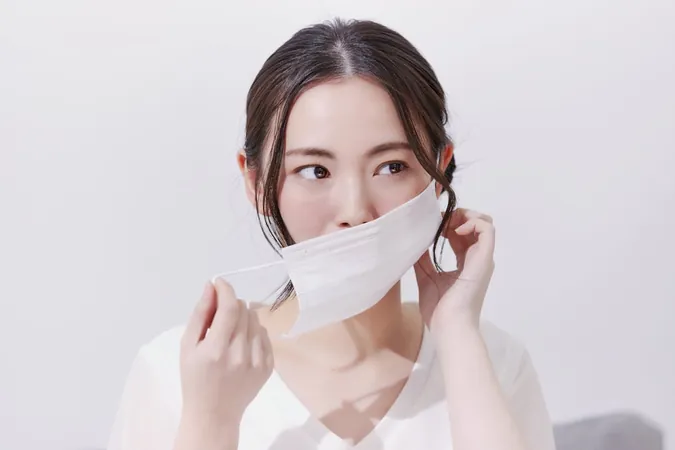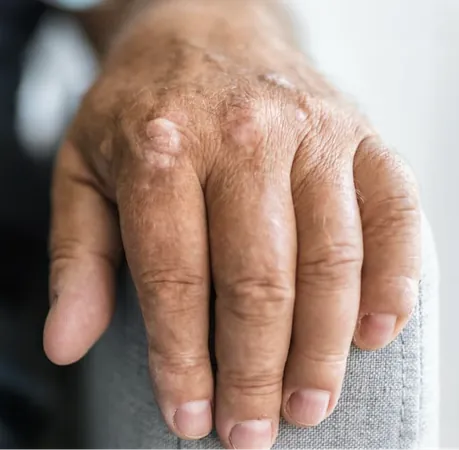
Why Japan's Youth Just Can't Let Go of Their Masks
2025-05-04
Author: Wei
Mask Wearing: The New Normal in Japan
While much of the world has cast aside face masks, Japan's young people are holding on tight. For many, these masks have transitioned from protective gear during the COVID-19 pandemic to a comforting accessory.
A Deep-Rooted Tradition
Japan has a longstanding history with mask-wearing, dating back to the 1918 flu epidemic. Over the years, wearing a mask during cold season has become socially accepted and even expected. With the COVID-19 crisis, many in Japan continued this practice even as other countries moved on.
Current Masking Trends
According to a recent report by Cross Marketing, 56.8% of Japanese people still wear masks regularly, while 25.9% rarely do. Masks are primarily worn in scenarios such as visiting hospitals (53.6%), catching a cold (44.3%), using public transit (42.7%), or during seasonal sickness.
The Mask Generation's Unique Perspective
Interestingly, a significant number of young people—dubbed the "mask generation"—have developed an emotional attachment to their masks. Many find comfort in obscuring their faces, with some feeling outright embarrassed to be seen without one. College student Yajima Sari estimates that 30 to 40 percent of her classmates regularly wear masks.
Hatanaka Hisahiro, a peer, echoed these sentiments, explaining that he became accustomed to masking during the pandemic and now feels shy about revealing his face in public. The fear of how one's appearance is perceived has led to social anxieties, especially concerning romantic relationships, as some prefer to keep their faces hidden until trust is established.
The Rise of 'Mask Dependency'
Concerns are growing about the phenomenon of 'mask dependency' among young people, where wearing a mask becomes less about health and more about feeling secure about their looks. Yurika shared how she only saw classmates' faces in their yearbook photos, revealing the extent of this dependency.
Hatsuki Nanako, a 25-year-old author, felt compelled to wear her mask daily after facing comments about her appearance. For her, it took traveling abroad for plastic surgery to feel comfortable enough to remove the mask in public. Her journey is documented in her yuri manga, "Goodbye Mask."
A Societal Impact
Many attribute the persistence of masking to societal conditioning. Public workers and restaurant staff continue to wear masks, reinforcing the notion that it’s a norm. For some young people, their relationship with masks has grown complicated, feeling as though they are bound to this habit.
Yet, it's crucial to remember that not all motivations for masking are rooted in appearance. Commentators on Yahoo! News pointed out varied reasons for continued mask use—concerns about allergies, health, or simply to combat changing weather.
Conclusion: A Complex Relationship with Masks
As Japan’s youth navigate their feelings around masks, it’s evident that this accessory represents much more than a health safeguard. It embodies comfort, societal expectations, and even identity in a post-pandemic world.






 Brasil (PT)
Brasil (PT)
 Canada (EN)
Canada (EN)
 Chile (ES)
Chile (ES)
 Česko (CS)
Česko (CS)
 대한민국 (KO)
대한민국 (KO)
 España (ES)
España (ES)
 France (FR)
France (FR)
 Hong Kong (EN)
Hong Kong (EN)
 Italia (IT)
Italia (IT)
 日本 (JA)
日本 (JA)
 Magyarország (HU)
Magyarország (HU)
 Norge (NO)
Norge (NO)
 Polska (PL)
Polska (PL)
 Schweiz (DE)
Schweiz (DE)
 Singapore (EN)
Singapore (EN)
 Sverige (SV)
Sverige (SV)
 Suomi (FI)
Suomi (FI)
 Türkiye (TR)
Türkiye (TR)
 الإمارات العربية المتحدة (AR)
الإمارات العربية المتحدة (AR)